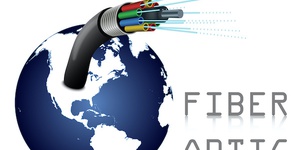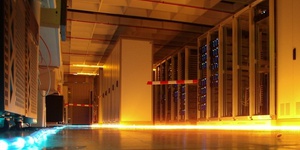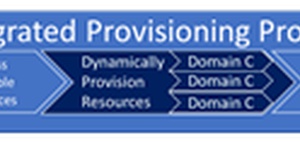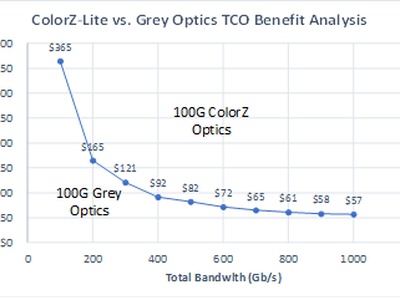
Whitepapers
Inphi’s ColorZ-Lite Technology: Offering an innovative solution for Nx100 G campus connectivity
Although mature, cost-effective and widely deployed, 10 Gb/s pluggable optical technology no longer addresses the increasing bandwidth and distributed workload demands of enterprise campus environments. In response, enterprises are migrating to 100 Gb/s campus connectivity and asking a question about what optical technology is appropriate and least-cost for such deployments. To answer this question, ACG Research conducted a total cost of ownership (TCO) economic analysis of three 100 Gb/s optical technology alternatives: 100 Gb/s grey optics, Inphi’s ColorZ-Lite technology and 100 Gb/s coherent DWDM.
First, some background onInphi. In 2016, Inphi announced its ColorZ technology, which delivers 100 Gb/s, 100 GHz, fixed-dense wavelength division multiplexing (DWDM) in a 4.5 watt, QSFP28 pluggable package. In 2017, the technology is actively being deployed to interconnect sub 80 km metro-distributed data centers. Inphi has now introduced ColorZ-Lite, a derivative of the ColorZ technology optimized for 10–20 km campus connectivity. In our analysis, we looked at the capital expense and operational expense of deploying the three competing alternatives in a 10–20 km campus connectivity environment. We considered grey optic alternatives such as 100G-BASE-LR4 with 10 km reach or 100G-BASE-eLR4 with up to 20–25 km reach. We also included options to lease or build the actual fiber. In the paper, we document four different deployment scenarios: three with leased fiber and one with built fiber. Not surprisingly, our results found that coherent DWDM technology is generally the most expensive option and overkill for operation at the relatively short 10–20 km campus distances. However, grey optics and ColorZ-Lite economic results vary based upon environmental conditions. Grey optics is the least-cost alternative if the enterprise has easy access to fiber and/or the bandwidth demands are low. ColorZ-Lite is the least-cost alternative if connectivity demands are large (Nx100 Gb/s) or fiber is scarce; with ColorZ-Lite delivering up to 68.5% TCO savings and 89% lower operation expenses over five years in a leased fiber scenario.
You might like similar whitepapers


The Right Container Platform(s) for Modern OSS and BSS

AUTONOMOUS NETWORKS: NOW IS THE TIME

AUTONOMOUS NETWORKS POWER INDUSTRY 4.0

Next-Generation Cloud Metro Network Requirements and Architectures

Middle-Mile Networks Capacity Requirements for Fixed Broadband

THE POWER OF DIFFERENTIATION: BUILDING BROADBAND FOR 2021 AND BEYOND

AUTOMATING 5G ACCESS DEPLOYMENTS

The Economic Benefits of Juniper Apstra and CN2 in a Modern 5G Network

The TCO Benefits of Distributed Broadband Services with CUPS

Building Open, Scalable Service Delivery Infrastructures

Always On, Active Analytics and AI for Superior Performance in Digitally Powered Enterprises

Orchestrating Dynamic Enterprise Services

The Missing Guide in SP Managed Services Profitability

Achieving End-to-End Intelligence in the Cable Access Network

Meet Market Needs with Software-Enabled Solutions

Nuage/ALU on the VNS Solution in an SP Context

5G Service Assurance: The Case for AIOps

Comparing Broadband Network Architectures in the Evolving Connectivity Landscape

Key CommSoft Learnings from #MWC19

Maximizing Efficiency Using Standards-Based, Model-Driven Infrastructures in NFV Deployments

Mitigating Market Challenges in Telecommunications

Using Open Virtual RANs in 5G

An Approach to Offering Profitable Managed Network Services

Global Pricing for SD-WAN

Itential Vendor Profile: Automation and Orchestration for Multi-Domain Networks

Coriant’s Multi-Sided Platform Partner Program: Market Impact Report

Disruption Propelling Massive Changes in Video Market

The Evolution of Broadband Traffic: A Forecast for the Americas, EMEA, and APAC Regions

The Economic Benefits of Automating Capacity Optimization in IP Networks

Understanding VRAN

5G Service Assurance: The Case for AIOps

Simplifying IP Networks

The Economic Benefits of the Ciena Virtualized Edge Solution

Huawei ADN Solution Approach to Implementing Autonomous Networks

The TCO Benefits of Dell’s Next-Generation Telco Servers

Lenovo: Data Center Switch Solutions for Enterprise Data Centers

THE BUSINESS CASE FOR ADAPTIVE IP

Building the Business Case for AI in Wireless Networks: Juniper Mist AI TCO Report

THE ECONOMIC BENEFITS OF IP TRANSPORT AT 400G

INTRODUCING xHAUL REWRITING THE PLAYBOOK FOR TRANSPORT NETWORKING IN THE RAN IN 5G

Hybrid Networks: Integrated Provisioning for Virtual and Physical Networks

Broadband Access Transformation

Segment Routing: An ACG Research Whitepaper

ECONOMIC BENEFITS OF THE VMWARE TELCO CLOUD AUTOMATION AND HORIZONTAL INFRASTRUCTURE






